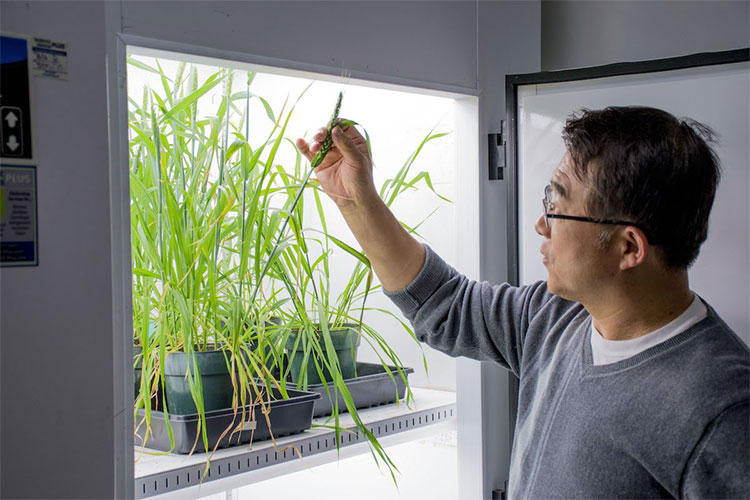CRISPR put to work to save chocolate from devastation
UC Berkeley scientists are using new gene-editing tool to save cacao from climate change

January 2, 2018
Chocolate is forever, right? UC Berkeley scientists, using the revolutionary gene-editing tool CRISPR, are working to make it so, as climate change threatens the cacao plant’s favorite growing sites.
In the lab of Myeong-Je Cho, the director of plant genomics at the Innovative Genomics Institute at Berkeley, cacao plant seedlings are being grown with the hope that they will thrive as climate change warms and dries the rainforests they thrive in. The genes of the plants have been changed slightly, using CRISPR, in hopes they’ll better withstand the new conditions, according to a story in Business Insider. Without such changes, cacao grown in the world’s major cacao-producing areas will be forced uphill into new terrain or could die out.
To help cacao survive, the genomics institute is working with food and candy company Mars, as part of the candy company’s $1 billion commitment to reducing its carbon footprint.
Jennifer Doudna, the UC Berkeley geneticist who invented CRISPR, is overseeing the collaboration. Doudna has said her invention’s most profound applications won’t be on humans but rather on the food they eat.